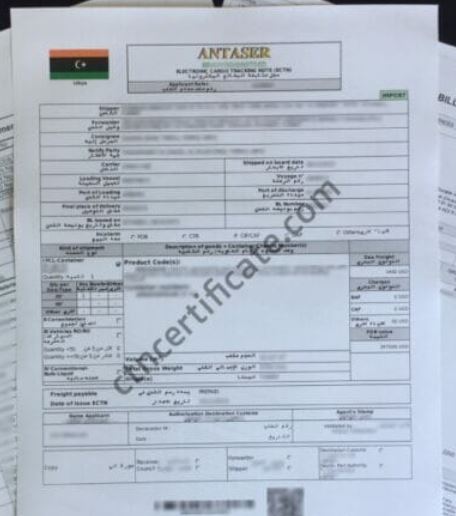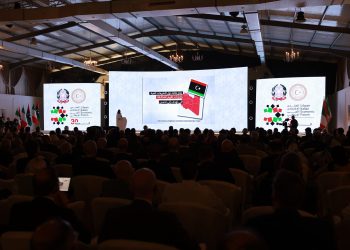By John Hamilton.
London, 12 August 2013:
July was a disastrous month for Libyan oil production as output fell below 400,000 b/d due . . .[restrict]to strikes at some of the major export terminals. The authorities hope to resolve some of the complaints motivating the blockades after the Eid Al-Fitr holiday marking the end of Ramadan. However, officials are not yet confident of regaining full control and, for the foreseeable future, the outlook is one of continued disruption.
One day before the start of Eid, Deputy Oil and Gas Minister Omar Shakmak said that he expected protests at the Sidra and Ras Lanuf terminals to be lifted first. Speaking to the industry newsletter African Energy, he said “I don’t have details yet, but hopefully these two terminals will resume operations”. However, international media reported on 8 August that the Es Sider crude stream which is exported from the terminal had “collapsed” due to a strike at the terminal. The Wall Street Journal said that production from Waha Oil Company –normally amounting to about 300,000 b/d, had ceased as storage at the terminal was full. Sidra has 19 storage tanks with total capacity of 6.2m bbls. Waha is owned by National Oil Corporation (NOC) and a trio of US companies: Hess, ConocoPhillips and Marathon Oil. According to one industry analyst, a lack of confidence in Waha’s ability to produce reliably, thanks to strikes, may have motivated Marathon’s unconfirmed intention to sell its stake in the joint venture.
Other companies which export from Sidra include Total’s Mabrouk Oil Operations and Wintershall. The Libya Herald understands that neither company has problems at its fields, but they are being affected by the closure of the terminals. A strike at the Ras Lanuf terminal has also shut in 200-300,000 b/d of production from fields operated by Arabian Gulf Oil Company (Agoco), Wintershall and the NOC-Suncor joint venture, Harouge Oil Operations.
A third debilitating strike has interrupted production from companies which export via the Zueitina terminal. These include Zueitina Oil company which is part owned by Occidental Petroleum, and Mellitah Oil and Gas (MOG), a joint venture with Italy’s Eni. According to one industry source, production from MOG’s 100,000-b/d Bu Attifel field is currently shut in. Shakmak said that resolving the blockade at Zueitina – which has lasted longer than any other – “will need some more time”. The problem facing authorities here, according to a Libyan political analyst, is that the protest is not only about wage levels and employment, but is also a way of activists demonstrating autonomous control over energy production in the east of Libya. He said that political groups pushing for federalism in Cyrenaica had an incentive to block exports to gain leverage in constitutional negotiations. If true, more disruption is therefore almost certain.
Other terminals have witnessed blockades at various times over the past several months. As with the current shut-ins, they were caused by armed groups supposedly responsible for providing security at the sites. In March, a fire-fight between Zintan and Zuwara armed groups shut the Mellitah gas complex near the Tunisian border for eight days. The Marsa Al-Herigah terminal in Tobruk was closed by members of Petroleum Facilities Guard in early August. On 7 August, Shakmak described the situation there as “not 100 percent under control”, saying he hoped it would be by the date of next shipment from the port, scheduled for 10 August. In the week running up to Eid, the government sent out delegations with cash to pay protestors at the terminals. However, this approach of paying off the guards did not appear to have taken affect before the start of the holiday.
Output from Marsa Al-Herigah is also being affected by major problems at Agoco, which operates the large Sarir and Messla fields located about 400 kilometres south of Benghazi. Union officials at the company have threatened to progressively cut production unless the company was allowed more autonomy from National Oil Corporation (NOC) and its chairman Ahmed Al-Magbry be retained in his place. There is however, serious dissatisfaction in the Libyan oil industry about Agoco’s senior management. According to one source, NOC has already made three attempts to replace Magbry, but each time the decision has been vetoed by the Oil and Gas Ministry.
Agoco’s board is reported to be divided and its personnel are also split between those who support the current management and those who accuse it of giving large wage increases to some workers in the fields, while neglecting others. It is also blamed for a failure to resolve fundamental technical problems which are now seriously restricting output. A company source said that “production is very low because of demonstrations and the old problem of electricity. They fixed some fields but then there is another problem in another field. The equipment and surface facilities are old in general.”
Lack of output from Agoco’s eastern fields has worsened an already bad situation at Libya’s eastern refineries. The small refinery at Tobruk is not working and the 220,000 b/d Ras Lanuf Refinery, Libya’s largest, is also down. Having closed for routine maintenance, its workers went on strike and it has not reopened. However, even if it does restart, it cannot operate for long. It “went down for planned maintenance and didn’t come on again. Even if it does come back it has only five days of crude in storage,” said the international oil market source. It is supplied with a blend from Messla and Sarir rather than from fields closer to it in the central part of the Sirte Basin.
Problems at fields and terminals in the west of Libya have mostly been due to protests rather than technical issues. MOG’s El Fil (or Elephant) field has been shut in because of a dispute between local Tebu tribes and security personnel provided by the Zintan Military Council. According to a recent document posted on Facebook, the Zintan militia at El Feel have requested 30 SUV vehicles, the employment of thuwar in the company, training of thuwar – including overseas – at the company’s expense, health insurance and a range of other benefits and concessions. It said these things were necessary as compensation for costs incurred since they took over security at the field in November 2011. Shakmak said the situation at the field was “under control”, although production had not resumed. However, it was reported on 11 August that an agreement with staff had been reached and that production would resume.
El-Fil oil is exported via the Mellitah terminal which also deals with condensate from the Wafa field. This production has also been interrupted. In late July, Amazigh activists blocked the condensate pipeline at Nalut, demanding that their language receive full recognition in the proposed new constitution.
Some reports have suggested that production at the As-Sharara field operated by Akakus Oil Operations and Repsol may have been affected by similar problems. But on 7 August a Repsol spokesman confirmed that “the fields operated by Akakus are working normally and producing at normal levels”. The Zawiya refinery which is supplied by crude from Akakus is also reported to be working as usual. Together with offshore oil production in western Libya and gas production at Mellitah’s West Libya Gas Project, this is the only part of the whole industry which, for the time being, is operating it should.
John Hamilton is a contributing editor at African Energy (www.africa-energy.com) and a director of Cross-border Information (www.crossborderinformation.com). [/restrict]








